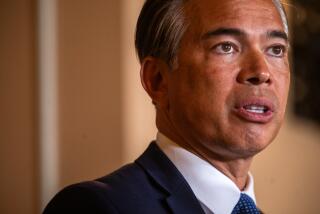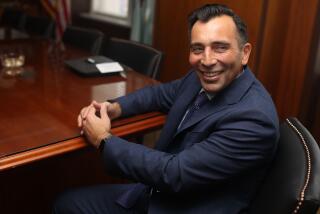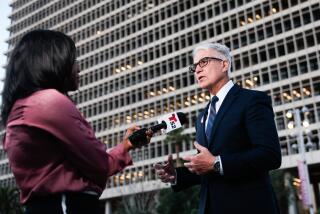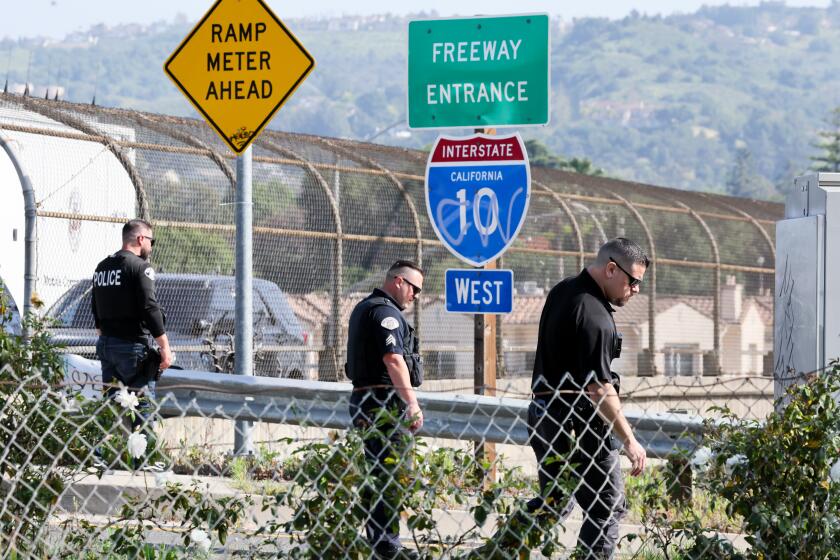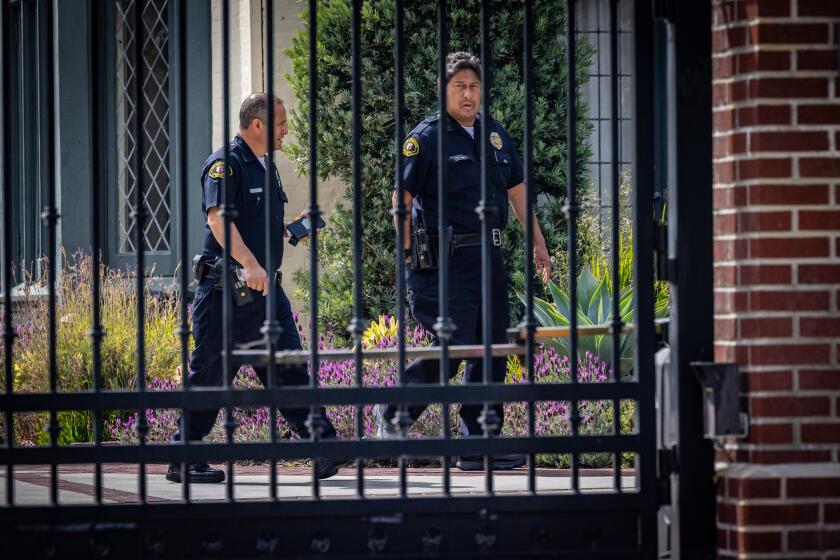Feds had a win streak in L.A. jails scandal. Then they took on the former boss
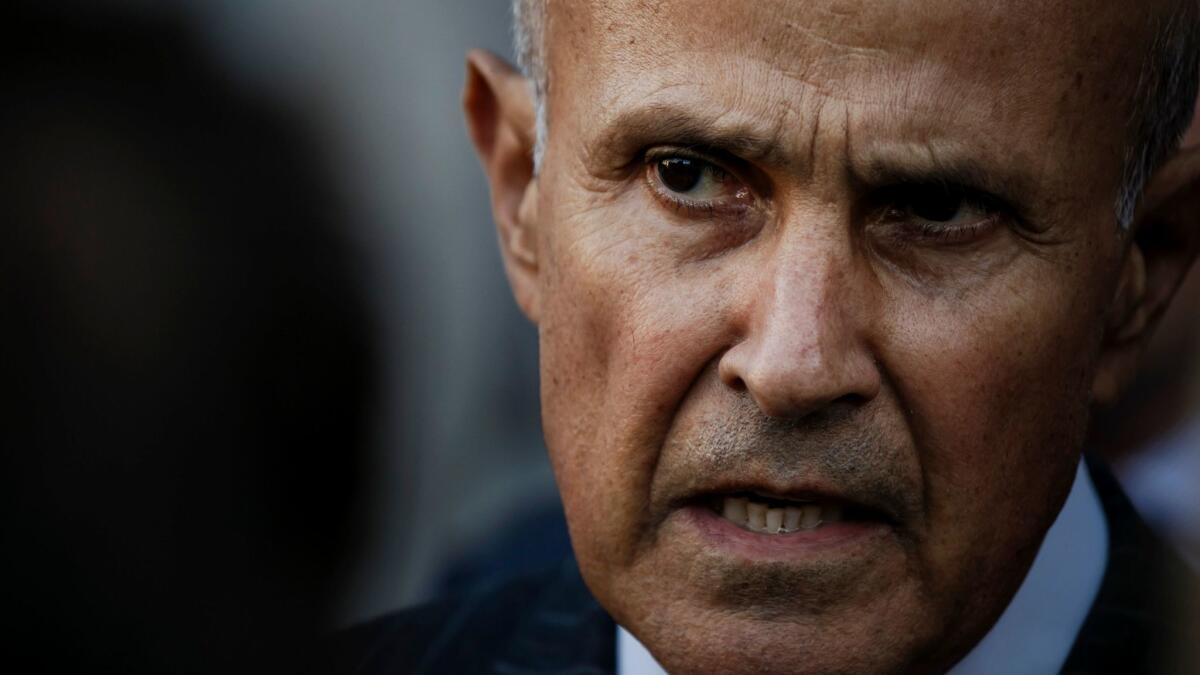
The team of federal prosecutors was on a roll.
For nearly five years, the Public Corruption and Civil Rights section of the U.S. attorney’s office had been building and winning cases against a group from the Los Angeles County Sheriff’s Department accused of carrying out a plan to obstruct a federal investigation into allegations of inmate abuse at the county jails.
The prosecutors worked their way up the chain of command. But when it went after its last and largest target — former Sheriff Lee Baca — the government’s run of wins came to an abrupt end this week.
The mistrial declared Thursday after jurors deadlocked 11 to 1 in favor of acquitting Baca of conspiracy and obstruction of justice charges affirmed what even prosecutors knew going into the trial: Convicting Baca would be much harder than the others.
In the end, the government failed to convince all but one juror that Baca had harbored malicious intent and played a direct role in the plot to interfere with federal authorities, an outcome that underscores the difficulty of trying to tie top public officials to corruption carried out by subordinates, interviews with jurors and legal experts showed.
“It is always challenging to pursue cases such as these, where the government is seeking to hold criminally responsible a highly regarded public servant at the highest levels of law enforcement,” said Miriam Krinsky, a former federal prosecutor who led a commission on jail violence and who has closely followed the trial. “The prosecution of an iconic and respected figure such as Lee Baca was particularly challenging.”
The government itself acknowledged the weaknesses underlying its case in court papers related to a deal that Baca and prosecutors struck earlier this year.
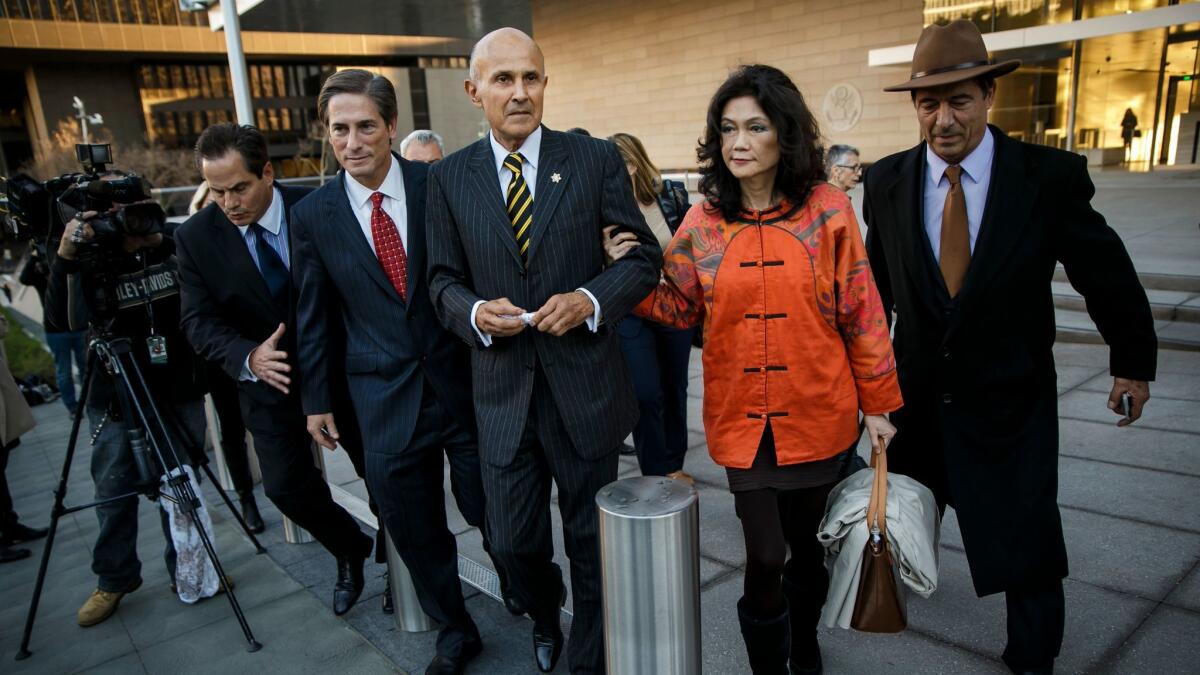
In June, Assistant U.S. Atty. Brandon Fox, the lead prosecutor in the obstruction cases, filed a memo explaining why the judge should approve the deal. Under the terms of the agreement, Baca would plead guilty to a lesser charge of making a false statement to federal investigators in exchange for no more than six months in prison.
The proposed time behind bars was significantly less than the sentences U.S. District Judge Percy Anderson had given to the defendants in the other obstruction cases, and Fox tried to convince Anderson that the comparatively light punishment was justified because the evidence against Baca was relatively weak.
“While he was at the top of the organization, the evidence does not show that he was as involved...as his subordinates were,” Fox wrote. Fox declined to be interviewed for this article.
In his memo, the veteran prosecutor went through the various aspects of the obstruction scheme, which included hiding from FBI agents an inmate who was working as their informant, witness tampering, and intimidating the lead agent in the case.
For each, Fox wrote, “The investigation has revealed no evidence that defendant Baca was aware.” By contrast, prosecutors had managed to win a conviction against Baca’s top aide, then-Undersheriff Paul Tanaka, on a bounty of emails, phone records and other evidence that showed he had led the group that carried out the alleged scheme.
Anderson ultimately rejected Baca’s plea deal, saying it was too lenient. With the judge indicating he would hand down a far stiffer sentence, Baca opted to take his chances with 12 of his peers.
At the trial, the government recast Baca in a much harsher light.
In the absence of clear evidence of the former sheriff’s direct involvement in the plan to thwart the investigation, Fox and his team were left to build a more circumstantial case that Baca had helped devise the plan and been kept in the loop by Tanaka.
Their argument, said Loyola Law School professor Laurie Levenson, a former federal prosecutor, was essentially, “He must’ve intended it because he didn’t call it off.”
Despite Fox’s claims to the jury that Baca was “the heartbeat” of the conspiracy and his portrayal of the former sheriff as a vindictive, territorial leader, it ultimately was a hard sell against a decorated veteran sheriff, Levenson added.
“It was great rhetoric, but it’s hard to prove that when Baca’s sort of on the edges,” she said. “He just is not as venal as other defendants.”
Most of the sheriff’s subordinates convicted of obstruction were still pursuing appeals when prosecutors began putting on their case against Baca, leaving the government with few witnesses willing to testify about their interactions with the sheriff during the six weeks in 2011 when the alleged plan played out. Fox chose not to call one possible witness, former Capt. William “Tom” Carey, who had already pleaded guilty to making false statements to the grand jury in the case.
Instead, prosecutors relied on more peripheral witnesses, including a former L.A. Times reporter, who said Baca told him that he directed two sergeants to visit the home of the lead FBI agent on the civil rights investigation. The sergeants confronted the agent and falsely informed her they were obtaining a warrant for her arrest.
...there just wasn’t enough concrete evidence that had Baca ties to it
— William Neal, jury foreman
Prosecutors alleged the move was an attempt to intimidate the agent and get the FBI to back off. A former U.S. attorney, now a federal judge, recalled phone calls and meetings with Baca in which he said the then-sheriff was angry and seemed to be in the know about developments in the case.
Two other deputies who had been convicted of playing a part in the conspiracy told jurors that while they had little to no contact with Baca, it was made clear to them the orders came all the way from the top. One said he watched a nervous supervisor walk into Baca’s office to notify him that deputies had mistakenly allowed FBI agents to meet with the inmate who was working as a federal informant.
But jury foreman William Neal sai in an interview with The Times after the mistrial that he and fellow jurors were unconvinced.
The panel had begun deliberations split on Baca’s guilt, but over more than three days of talks, all but one of the jurors came to the consensus that prosecutors had failed to connect the retired sheriff to the actions in the case, Neal said.
“That was one of the main points, at least for me and the majority of us, that there just wasn’t enough concrete evidence that had Baca ties to it,” he said. “That’s where reasonable doubt came into play.”
The single holdout juror, though, seemed to feel adamant that it added up to prove Baca responsible, Neal said.
“He agreed that a lot of the evidence was circumstantial, but as a collective whole, it showed that he was, in his mind, guilty. He didn’t feel like he could be moved from this stance,” he said.
Another juror, who gave her name only as Sheri, said the holdout juror appeared “biased” from the start and not open to discussion. For her, looking through her own trial notes for Baca’s name made it clear that he didn’t know what was going on, she said.
“Phone calls, emails, looking for specifics. Is he guilty or not? That’s what we kept on looking for,” she said.
She said she went into the case thinking Baca, as the sheriff, would have been kept in the loop. But as she heard the evidence, it became apparent he was not, she said. As to the problems in the jails, she said, the prosecution did not make a convincing case that he was ignoring them.
“I believe he knew that there were things happening in the jail that shouldn’t have. I definitely think he knew. But I think he was taking care of it,” she said.
The U.S. attorney’s office must now decide whether to retry Baca on the charges. He also faces a possible separate trial on the charge he had previously agreed to plead guilty to — making false statements to federal authorities.
To read the article in Spanish, click here
For more news on Los Angeles County’s jail abuse scandal, follow us on Twitter: @joelrubin and @vicjkim
ALSO
Chance of showers on Saturday, then dry, cloudy and cold on Christmas
Political Road Map: There’s a rich history of wanting to slice up California or split it off
Actress Carrie Fisher is in critical condition after a cardiac episode on flight from London to L.A.
More to Read
Start your day right
Sign up for Essential California for news, features and recommendations from the L.A. Times and beyond in your inbox six days a week.
You may occasionally receive promotional content from the Los Angeles Times.
